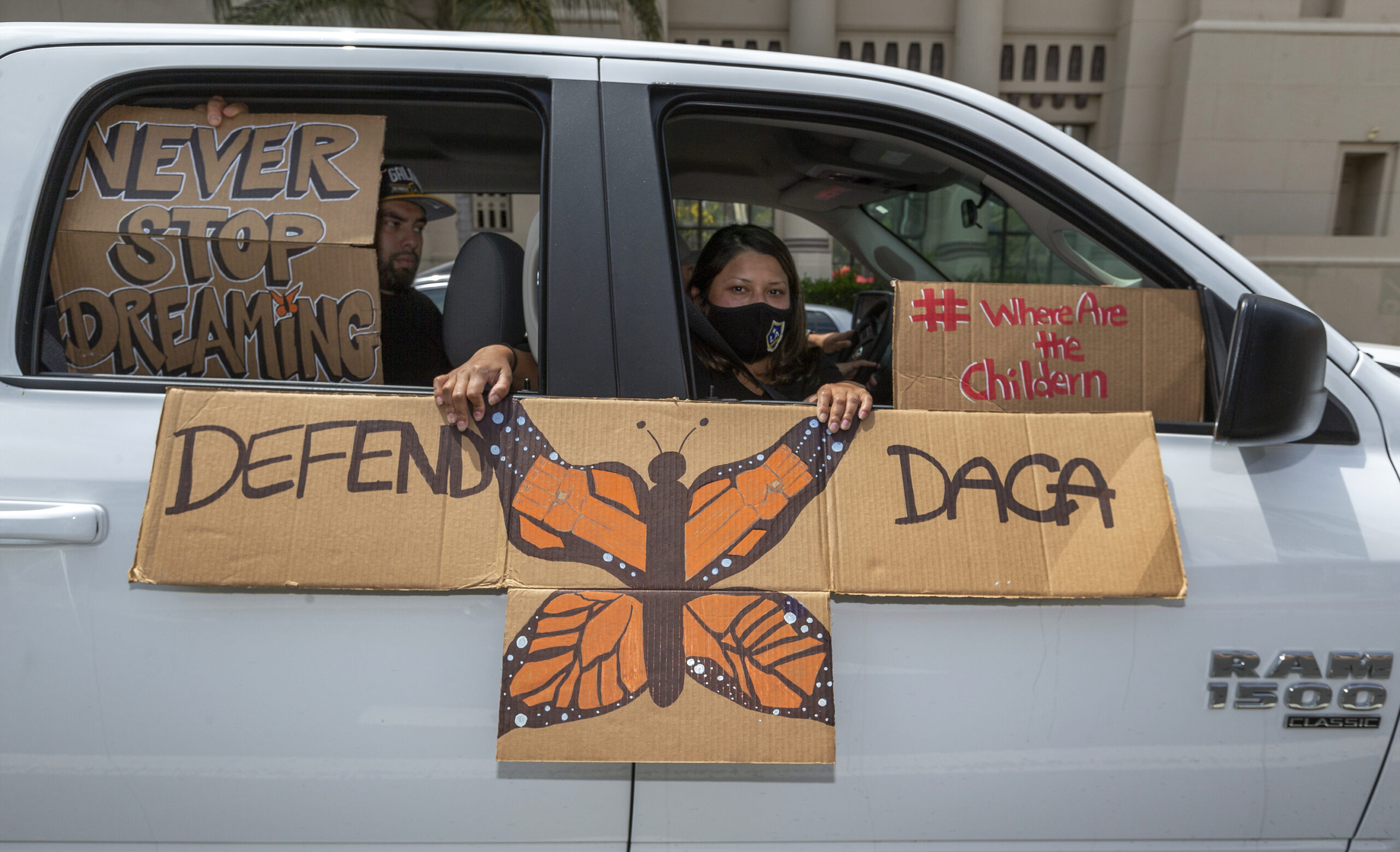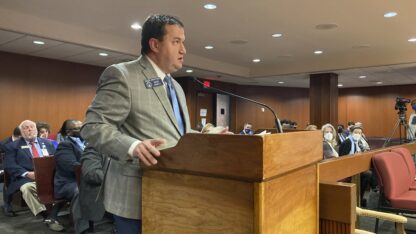Local ‘DREAMers’ Feel Relieved, But Questions Remain

DACA recipients reacted with relief over the Supreme Court ruling to reject President Donald Trump’s effort to end legal protections for 650,000 immigrants under DACA. But questions remain about the future of the program.
Damian Dovarganes / Associated Press
Raymond Partolan came to the U.S. from the Philippines when he was 15 months old.
He was driving with his girlfriend, also a DACA recipient, when he heard the news of the U.S. Supreme Court’s decision that the Trump administration can’t end the program – for now.
“We feel a sense of relief,” he says. “But we definitely acknowledge there’s a lot more work to come.”
About 21,000 DACA recipients live in Georgia. The Deferred Action for Childhood Arrivals allows recipients to apply for two-year, renewable work permits. The program allows Partolan to work and drive without fear of deportation.
“I will continue to be able to live my life with the same sense of security that I have continued to enjoy for the past eight years as a DACA recipient,” says Partolan.
Since the program was rescinded by the Trump Administration in 2017, only renewal applications were allowed. It’s unclear if new applications will be accepted. Some advocates encourage those eligible to apply.
Berenice Rodriguez, a legal practitioner with the metro Atlanta chapter of Asian Americans Advancing Justice, says undocumented residents shouldn’t come out of the shadows just yet.
“I think a lot of people get taken away with very big headlines like this,” Rodriguez says. “And I think it’s really important to read the fine line.”
For example, the Supreme Court said the reason for ending the program was arbitrary. But the Trump Administration can still try to end DACA if it comes up with a sufficient reason. According to national news reports, that may not happen, however, until months after the November election.
Rodriguez says eligibility for the program for new applicants may change. If a person tries to apply on their own, that could put them at risk for deportation.
“I don’t think people should attempt to apply on their own right now,” she says. “I still think people should still seek a legal professional.”
There are about 700,000 DACA recipients in the country. DACA is not a path to citizenship. It’s a program that shields certain undocumented immigrants who were brought to the U.S. as children from deportation.








